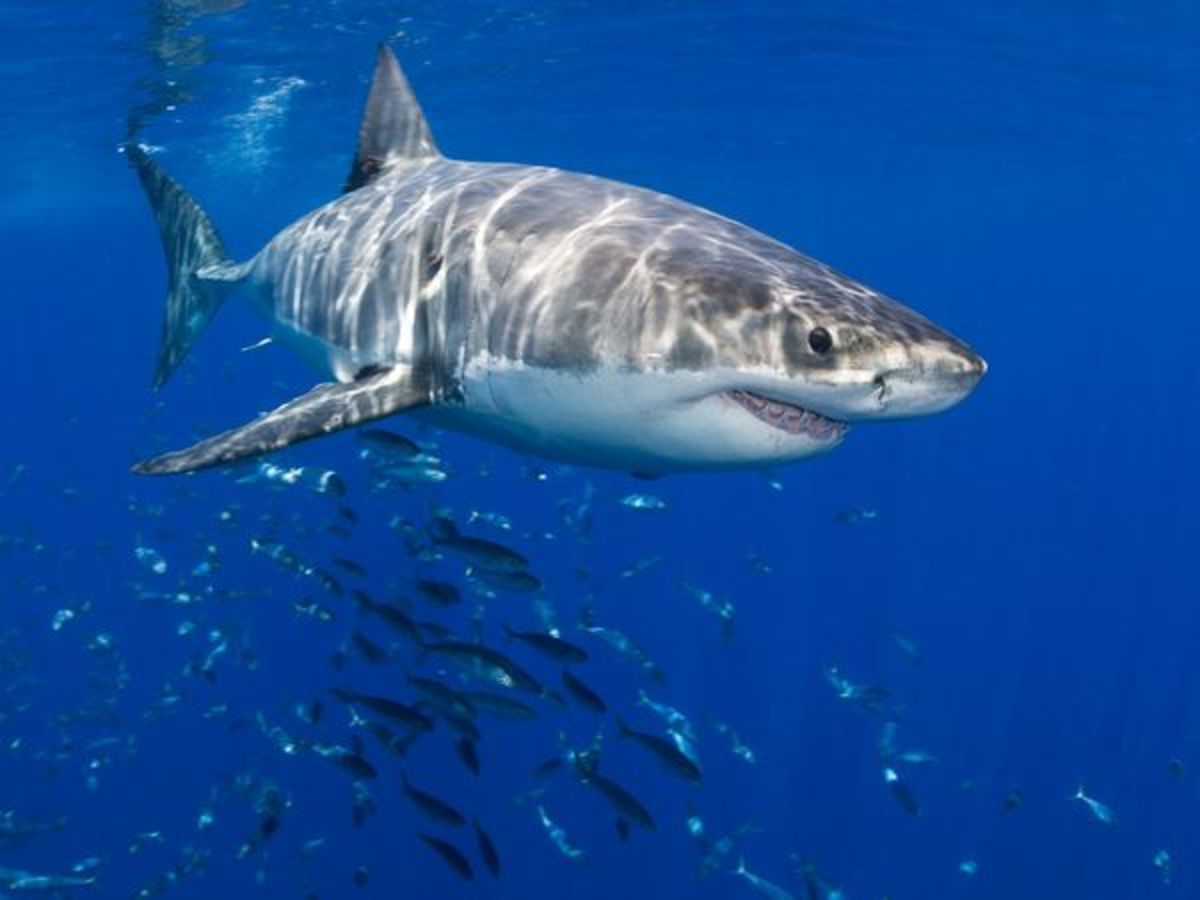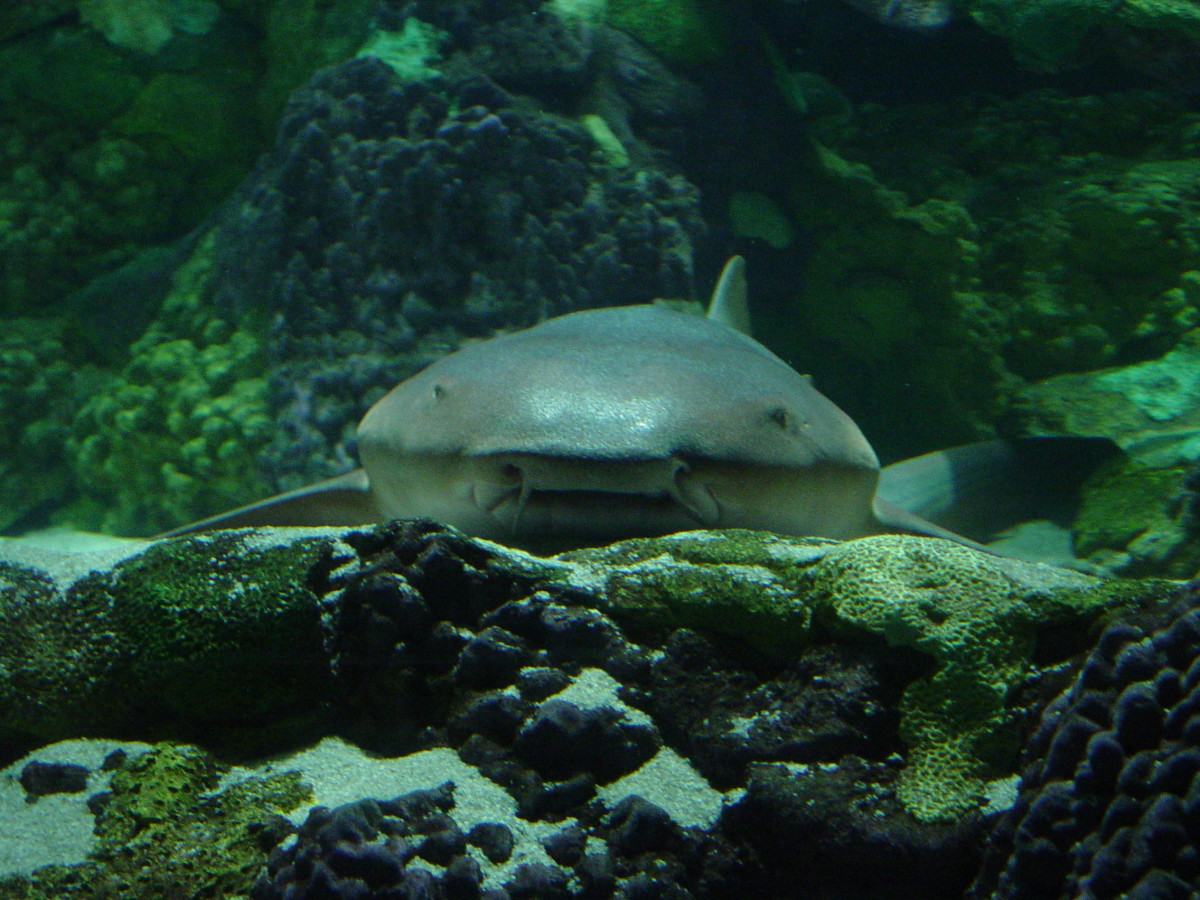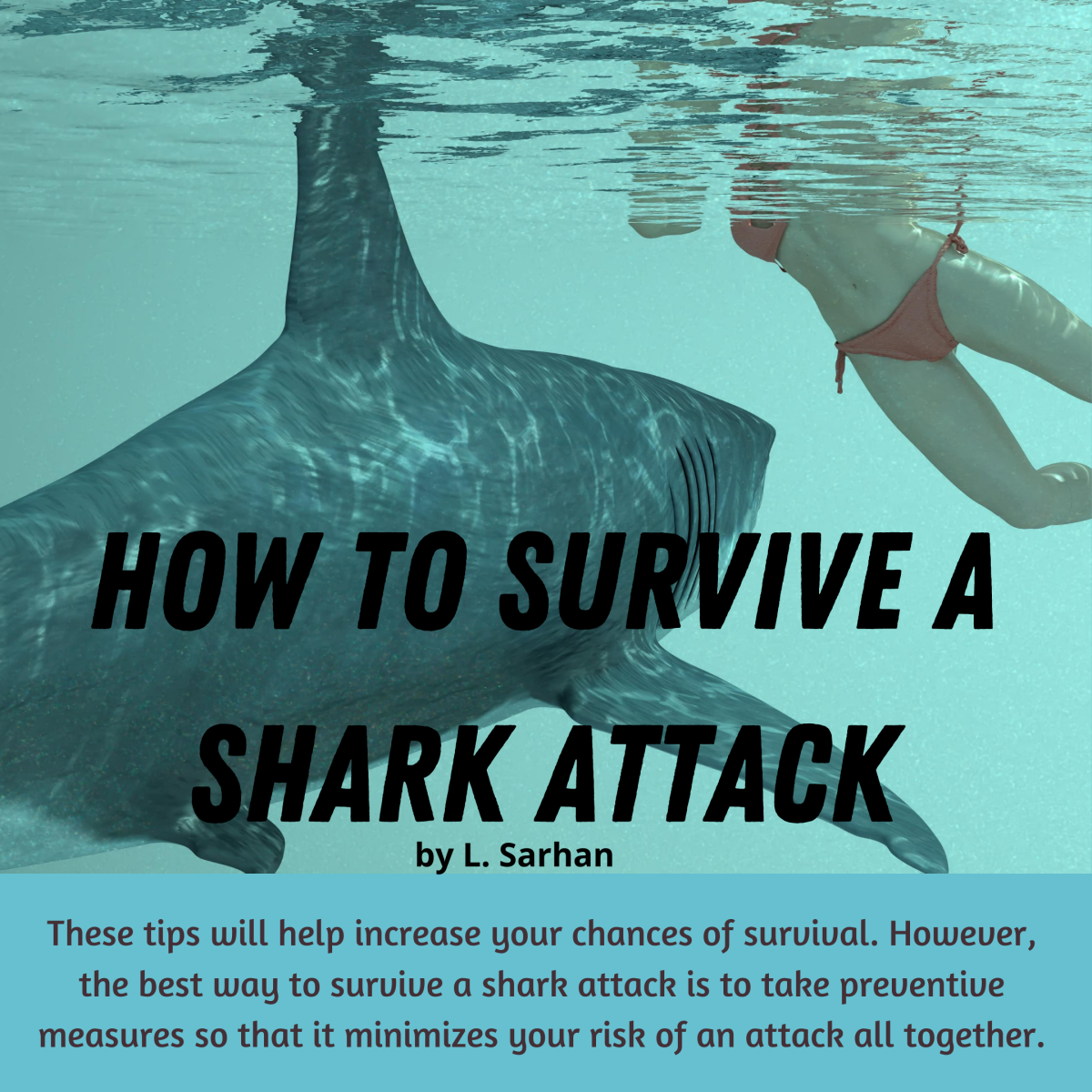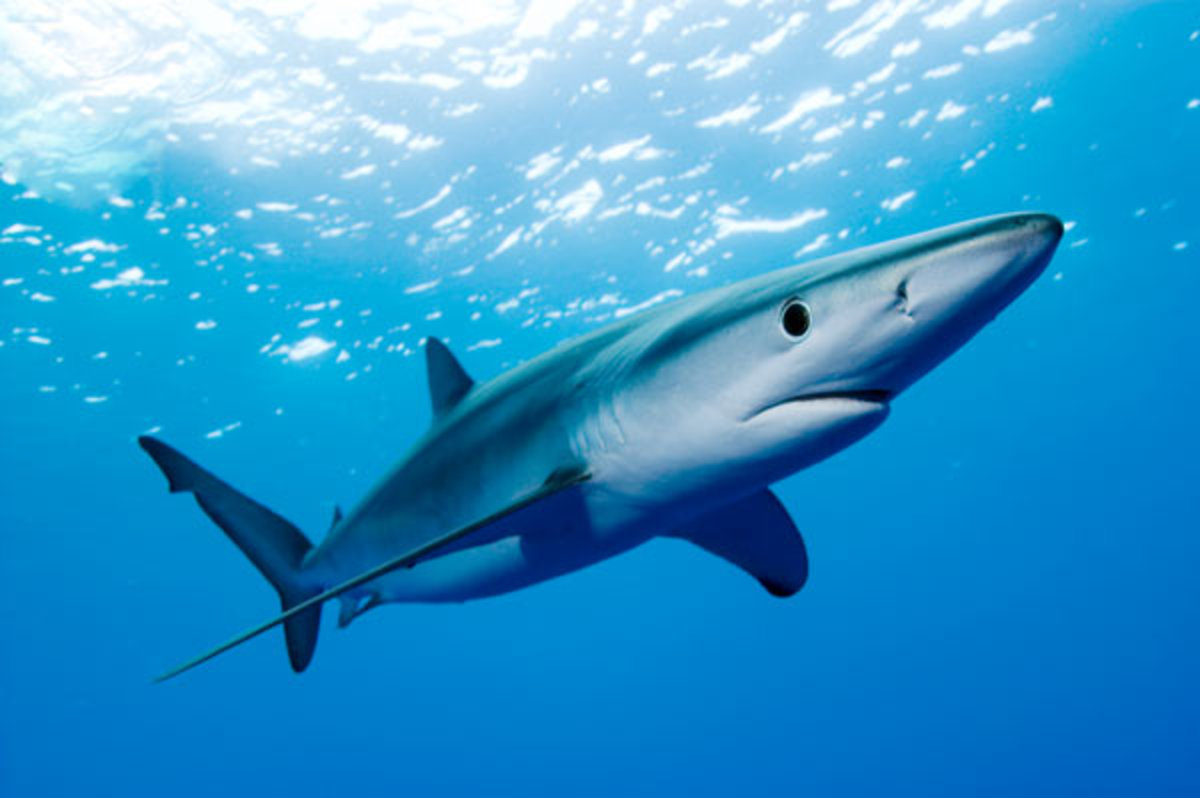- HubPages»
- Education and Science»
- Life Sciences»
- Marine Biology»
- Marine Life
Fear of Sharks
The Devil of the Deep
There is a creature alive today who has survived millions of years of evolution...without change, without passion and without logic. It lives to kill. A mindless eating machine. It will attack and eat anything. It is as if God created the devil and gave him...JAWS.
The hyperbole-driven quote above is from the classic 1975 Spielberg monster hit, Jaws...the film that put a serious dampener on ocean swimming for at least one generation of filmgoers. It's not just Jaws either..sharks have had a bad rap in film generally. If Hollywood is to be believed they are evil incarnate, roaming the seas like merciless psychopaths, occasionally scanning the shallows with their soulless, black beady eyes - looking for a kid on a lilo to chomp.
Yet rationally, we have much more to fear from the mosquito, whose disease carrying capacities have far outweighed any damage done to the human species by sharks. A single mosquito however, just isn't a terrifying image and fails to invade the psyche in the same way as a shark.
A fear of sharks is called galeophobia and I have a mild to medium dose of it. I'm not as far gone as some sufferers, whose terror extends to being frozen with fear when they're sitting on the beach or having a milkshake at a foreshore cafe.. I actually have to be in the water for that little wildcat of fear to start clawing at me. Nor am I exactly in terror (unless I spot a moving shadow)- it's more a case of feeling just enough anxiety to take the edge off my enjoyment of the water.
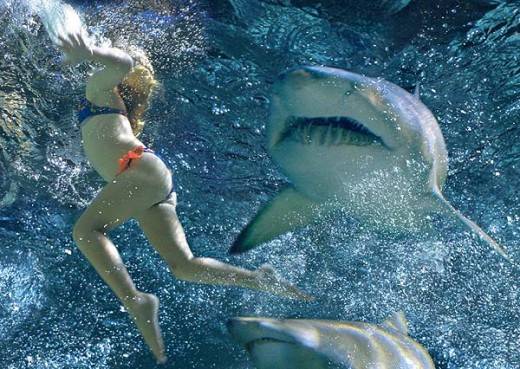
Avoiding a Shark Attack
Over the years I've taken heed of the advice given by fellow galeophobes....such as not to wear red swimsuit, don't swim with a dog, don't swim with a suntan because the white underflesh will make you look like a delicious, big juicy fish...and under no circumstances go into the water with a cut. Incredibly, a shark can detect a single drop of blood in 25 million drops of sea water.. I'm also careful never to be the one fartherest out in the water and definitely not the only swimmer in the sea...one doesn't want to be the only dish left at the smorgasboard.
If however, despite these precautions, you do find yourself confronted with a set of gnashing shark teeth and have time to react (not always possible, they can sneak up)- stay calm (yeah right) and go for the eyes, as along with the gills they're the most vulnerable part of the shark, though some survivors claim a punch in the shark's nose saved them. For the sake of my ecological integrity, I feel obliged to note here that sharks are a protected species and I would only harm one in self-defence...never gratuitously. I have the same attitude toward snakes - live and let live, except when threatened.
Of course my fears are out of proportion...but phobias are like that. I'm aware that I probably have more chance of drowning, being stabbed in the street or breaking my neck tripping over the bean bag than being eaten by a shark. I say 'probably' because the phobic part of my brain doesn't quite believe what I've just typed.
Aaagh!!
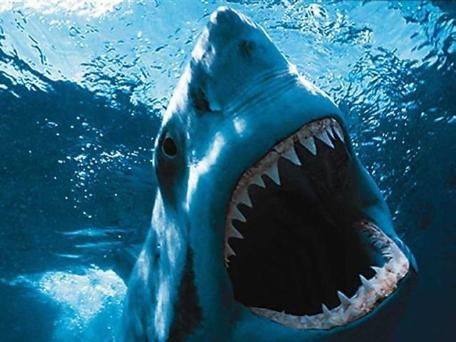
Some Shark Facts
Of the 450 or so species of sharks only 30% are considered dangerous. Experts are keen to emphasize that sharks do not seek out human prey and when they do attack it's usually a case of 'mistaken identity'., although franky I'm not sure that helps much. It's not as though the shark is going to realise its mistake and move on:"Oh pardon me madam, for a moment I thought you were a barracuda...let me just remove my teeth from your thigh and I'll be on my way." It's also not much comfort to hear that 60% of shark attack victims survive. They might survive but in what condition? Armless? Legless? Shattered by post-traumatic stress?
According to the Australian Shark Research Institute there have been 800 reported cases of shark attack since records began in Australia in 1803. This doesn't include commercial and military attack, which would add several more thousand to the list. One example is given of the USS Indianapolis, which, though even as a galeophobe I find hard to believe, lost 879 sailors to sharks. In a master database there are 5000 attacks listed, with additional incidents yet to be added. Of the several species of sharks, some of the offenders implicated in attacks, but not necessarily fatalities, are the white, tiger, bull, shortfin mako, blue, galapagos,carribean reef, dusky, oceanic whitetip, blacktip, grey reef, great hammerhead, broadnose sevengill, bluntnose sixgill, silky, bronze whaler, nurse, spinner, sand tiger, basking, spotted wobbegong and lemon sharks.
I need to keep remembering that my chances of being attacked are extremely low:
The ODDS
Drowning and other beach-related fatalities.....1 in 2 million
Shark attacks....1 in 11.5 million
From the International Shark Attack File
Nothing to Fear but Fear Itself
My galeophobia is a shame because swimming in the open ocean is one of my favourite things to do. True, sometimes I forget, especially in the surf when the waves are pounding wildy, threatening to rip my swimsuit off. In that situation exhilaration trumps fear and it's only when the waves subside and a stray piece of seaweed brushes against my thigh, that nervousness creeps over me once again.
As a child, I didn't fear sharks at all. Every summer, in blissful ignorance, I used to swim at Phillip Island, right near Seal Rock(which is often covered in sunbaking seals) and I believed the old codger who ran the caravan park when he said "oh there's no sharks around here..the seals scare them away." Often I'd swim right out to a faraway buoy or a boat, until the beach umbrellas on the shoreline became specks in the distance. I didn't even give sharks a second thought. Well..not often.
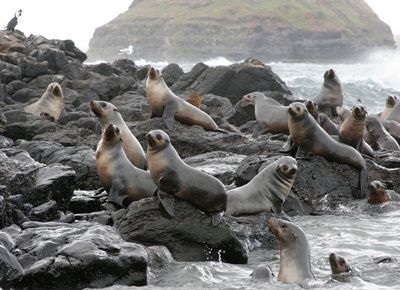
Of course I've since learnt that, far from scaring them away, there's nothing sharks like more than a juicy seal to digest and over the years, plenty of sharks have been spotted at Phillip Island, including Great Whites. That man was a liar! He merely wanted to reassure the tourists...yet in a way I am grateful to him because at least I had a few years where I could enter the water without being conscious that every shadow and movement might be concealing an eating machine...the devil of the deep.
Rationally then, a large portion of our fear of sharks [and many other things for that matter] is merely a state of mind and not based on a real, justifiable threat. We galeophobes can whip ourselves up into a frenzy of fear just because we suddenly become hyper-conscious that sharks exist.
Shark Fear Survey
On a scale of 1 to 5, how fearful of sharks are you when swimming in the ocean?
A Fine Piece of Work
Sharks are something of an evolutionary masterpiece - they've had
plenty of time to get it right. They are in their way, a creature of
awesome beauty. It's believed they evolved over 400 million years ago,
swimming in prehistoric seas some 100 million years before dinosaurs
first roamed the planet. The (thankfully) extinct megadon grew to lengths of fifty-two feet, making the Great White
look modest. The largest shark on earth is now the whale shark, still
whopping at 40 ft, although fortunately this mega-fish feeds mainly on
plankton. The smallest sharks are the dwarf lantern fish and the spined pygmy, growing between 7 and 8 inches in length.
A shark's body is highly streamlined -round in the middle and tapered at both ends, to facilite ease of movement through the water. To further propel and stabilise themselves, they may be equipped with dorsal fins, pectoral fins, tail fins and in some cases, anal fins. Not only are they extremely efficient swimmers, they also have exceptional eyesight that has been adapted to seeing in low light and from great distances. To match their acute sight, they have marvellous senses of hearing, smell and touch.
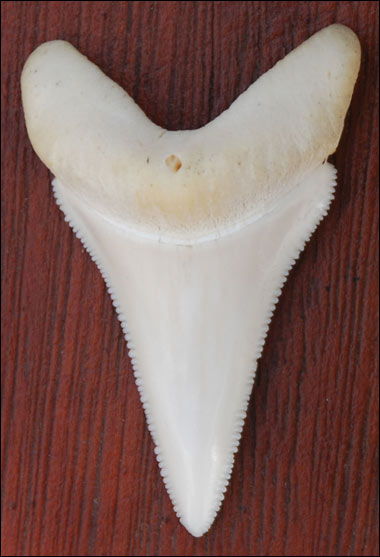
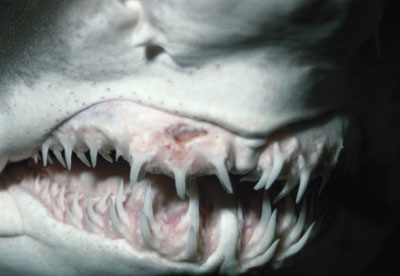
Teeth
Sharks never require a dentist as any lost or broken teeth are quickly replaced with new ones. It has been
estimated that some sharks may lose 30,000 teeth in one lifetime. The
lower teeth are cleverly designed primarily for holding prey, while the
upper teeth serve as A-grade chef's knives for carving, chopping,
dicing and cutting. Of course not all sharks teeth are alike and the shape and form will depend on the species and their particular diet.
However it's not just their teeth which are so remarkably well designed...sharks also have the most powerful jaws on the planet. A shark bites with its lower jaw first, to secure prey, followed by a snap down from the upper jaw which nicely mangles the meat and with a terrifying jerking back and forth with its head, the shark loosens a piece of meat and swallows.
But...we need them
Sharks are a very important participant in the marine eco-system. For one thing they dispose of weak and diseased fish and thus help to keep the ocean healthier. They also help tp protect reef systems by keeping the population of fish that feed off the reef down. Far from being merely primitive eating machines, they are actually very complex creatures, having developed some extraordinary features to ensure survival. 400 million years is a long time to be around. They're scary but they're necessary.
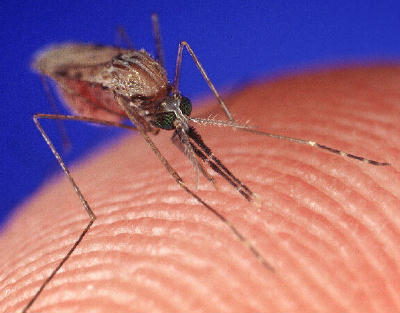
Further Reading
- Stop Shark Finning
Danger swims in the ocean. But it also floats on its surface. Sharks have inhabited the Earth's seas since the time of the dinosaurs. Yet a disturbing practice threatens their continued survival. Shark...
- Great White Shark, the flawless predator
The Great White Shark is quite feared by people out there, and there are many stories of them attacking people to keep you on guard when you are in the water. They are very large animals that can be as...

